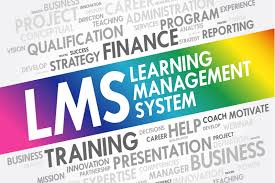Selecting the best Enterprise Resource Planning (ERP) solution for a business is a critical decision that can significantly impact the overall operations and bottom line. Microsoft Dynamics 365 is a powerful cloud-based solution designed to streamline Manufacturing operations for businesses of all sizes. By providing real-time visibility into Manufacturing operations, Dynamics 365 Manufacturing empowers businesses to make informed decisions based on accurate data.
This blog will cover the implementation concept of D365 Manufacturing, the common challenges, post-implementation best practices, and more.
D365 Pre-Implementation Considerations
Before implementing D365 Manufacturing, there are several important factors to consider. Here are some key pre-implementation considerations:
- Analyze your current business processes and determine how they will fit into Dynamics 365 Manufacturing
- Determine what and how much data needs to be migrated to the new system and develop a plan for data migration
- Identify any existing systems that need to be integrated with Dynamics 365 Manufacturing
- Develop a plan for user training and support to help employees become familiar with the new system
- Determine the budget for the implementation (licensing, hardware, and consulting fees)
Phases of D365 Implementation
The phases of a Dynamics 365 (D365) implementation can vary depending on the project scope, the organization’s size, and the complexity of the business processes. However, the following are the general phases of a D365 implementation:
- Analysis
This phase is where the project team analyzes the organization’s existing business processes, identifies gaps or pain points, and collects stakeholder data and requirements.
- Design
After analysis, the project team designs the solution to meet the organization’s business requirements. It includes configuring the ERP system, customizing required functionality, designing reports and dashboards, and defining any required integrations with other systems.
- Development
In the development phase, the project team builds the solution according to the design specifications. It includes configuring the system, customizing functionality, developing required integrations, and migrating data from legacy systems.
- Deployment
This phase involves implementing the ERP solution in the production environment. It includes installing and configuring the software, migrating data from legacy systems, and training end-users.
- Operation
The operation phase is where the ERP system is put into use. During this phase, the project team provides ongoing support and maintenance for the system, monitors its performance, and makes any necessary updates or modifications.
Dynamics 365 Post-Implementation Best Practices
Following are some post-implementation best practices to help you get the most out of your new system:
- Ensure that your end-users receive sufficient training on the new system. Train them on using the system efficiently and effectively to avoid productivity loss.
- Keep your system up-to-date by installing updates and upgrades as soon as they become available.
- Use the system’s analytics and reporting capabilities to gain insights into your business operations and make data-driven decisions.
- Establish a support plan that includes support channels, escalation procedures, and response times to address any issues or concerns.
- Continuously monitor the system’s performance and conduct regular health checks to identify any issues before they become major problems.
Common Challenges While Implementing Dynamics 365
While the benefits of implementing Dynamics 365 can be substantial, businesses may encounter some common challenges during the implementation process. Following are some of the common ones:
- Transferring data from legacy systems to Dynamics 365 can be a complex process that requires careful planning and execution to ensure that data is accurate and complete. Unsuccessful data migration can occur and lead to implementation failure.
- Resistance to change can be challenging when implementing Dynamics 365, particularly if employees are accustomed to working with legacy systems or manual processes.
- Dynamics 365 offers significant customization options, but businesses may encounter challenges in customizing the solution to meet their needs.
Is D365 Manufacturing Right for Your Business?
Microsoft Dynamics 365 is a powerful ERP solution that can help businesses of all sizes to streamline their operations, improve efficiency, and drive growth. It is highly scalable and can accommodate businesses of varying sizes, from small to large enterprises.
However, a successful Dynamics 365 implementation requires careful planning, thorough analysis, and effective project management. It is important to engage experienced consultants that can guide the implementation process and ensure that the solution is configured to meet your organization’s specific needs. With careful planning, effective execution, and ongoing support, a Dynamics 365 implementation can significantly benefit organizations looking to optimize their operations and drive growth.






